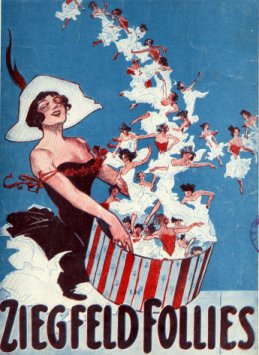
The Ziegfeld Follies were a series of elaborate theatrical revue productions on Broadway in New York City from 1907 to 1931, with renewals in 1934 and 1936. They became a radio program in 1932 and 1936 as The Ziegfeld Follies of the Air.
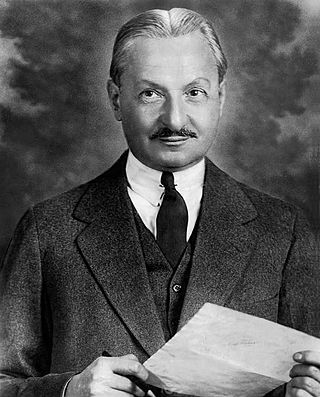
Florenz Edward Ziegfeld Jr. was an American Broadway impresario, notable for his series of theatrical revues, the Ziegfeld Follies (1907–1931), inspired by the Folies Bergère of Paris. He also produced the musical Show Boat. He was known as the "glorifier of the American girl". Ziegfeld is a member of the American Theater Hall of Fame.
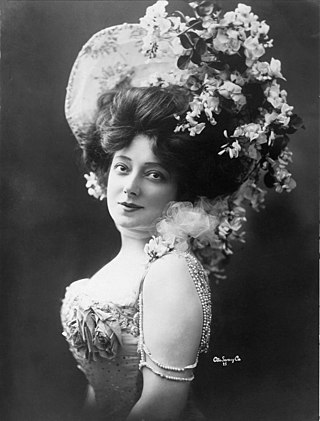
Helene Anna Held was a Polish-French stage performer on Broadway. While appearing in London, she was spotted by impresario Florenz Ziegfeld, who brought her to America as his common-law wife. From 1896 through 1910, she was one of Broadway's most celebrated leading ladies, presented in a succession of musicals as a charming, coquettish Parisian singer and comedienne, with an hourglass figure and an off-stage reputation for exotic behavior, such as bathing in 40 gallons of milk a day to maintain her complexion. Detractors implied that her fame owed more to Ziegfeld's promotional flair than to any intrinsic talent, but her audience allure was undeniable for over a decade, with several of her shows setting house attendance records for their time. Her uninhibited style also inspired the long-running series of popular revues, the Ziegfeld Follies.
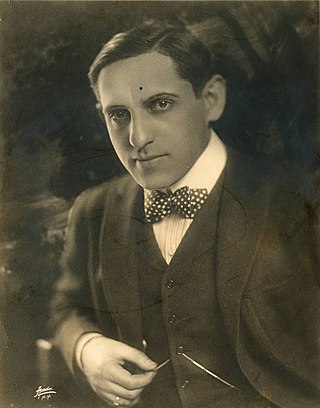
Gustave Edwards was an American composer, songwriter and film director. He also was a vaudevillian, organised his own theatre companies and was a music publisher.

The Will Rogers Follies is a musical with a book by Peter Stone, lyrics by Betty Comden and Adolph Green, and music by Cy Coleman.

Harry Bache Smith was a writer, lyricist and composer. The most prolific of all American stage writers, he is said to have written over 300 librettos and more than 6000 lyrics. Some of his best-known works were librettos for the composers Victor Herbert and Reginald De Koven. He also wrote the book or lyrics for several versions of the Ziegfeld Follies.

William Denight Cobb was an American lyricist and composer. He and a partner, Ren Shields, produced several popular musicals and musical comedies in the early 20th century. Cobb also had a long-run collaboration with Gus Edwards.
Harry Revel was a British-born American composer, mostly of musical theatre, working with various lyricists, notably Mack Gordon. He is also seen as a pioneer of "space age pop".
Ziegfeld Girls were the chorus girls and showgirls from Florenz Ziegfeld's theatrical Broadway revue spectaculars known as the Ziegfeld Follies (1907–1931), in New York City, which were based on the Folies Bergère of Paris.
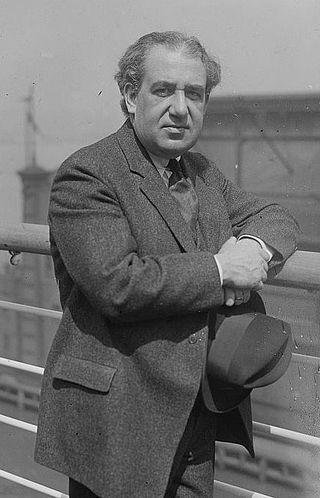
Channing Pollock was an American playwright, critic and screenwriter, whose works included The Evil Thereof (1916) and the memoir The Footlights, Fore and Aft (1911). Pollock is perhaps best remembered in connection with a review of one of his later plays, in which Dorothy Parker famously wrote "'The House Beautiful' is the play lousy."
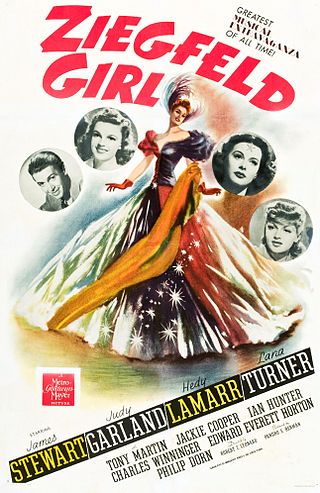
Ziegfeld Girl is a 1941 American musical film directed by Robert Z. Leonard and starring James Stewart, Judy Garland, Hedy Lamarr, Lana Turner, Tony Martin, Jackie Cooper, Eve Arden, and Philip Dorn. The film, which features musical numbers by Busby Berkeley, was produced by Metro-Goldwyn-Mayer.

Marjorie Bonner was an American dancer and actress who was a member of the Ziegfeld Follies of 1908. Produced by Florenz Ziegfeld, the Follies were presented in June 1908, at the Jardin de Paris, atop the New York Theatre.
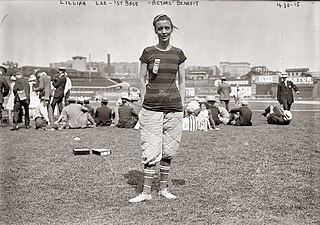
Lillian Lee was a stage actress in New York City beginning in the early 1880s. She was in the cast of the original Ziegfeld Follies in 1907.
London Calling! was a musical revue, produced by André Charlot with music and lyrics by Noël Coward, which opened at London's Duke of York's Theatre on 4 September 1923. It is famous for being Noël Coward's first publicly produced musical work and for the use of a 3-D stereoscopic shadowgraph as part of its opening act. The revue's song "Parisian Pierrot", sung by Gertrude Lawrence, was Coward's first big hit and became one of his signature tunes.

Katherine Gertrude Hoffmann was an American early 20th-century vaudeville dancer and choreographer.
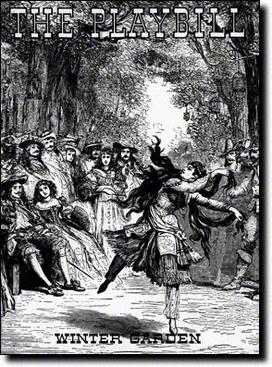
The Ziegfeld Follies of 1936 is a musical revue with lyrics by Ira Gershwin, music by Vernon Duke and sketches by Gershwin and David Freedman. The Ziegfeld Follies were a series of revues presented from 1907 through 1931, 1934, 1936, 1943, and 1957.
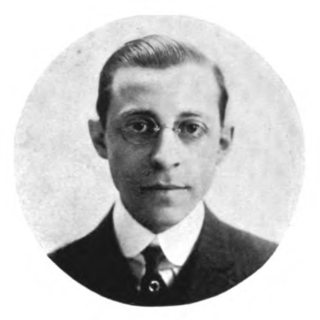
David Stamper was an American songwriter of the Tin Pan Alley and vaudeville eras, a contributor to twenty-one editions of the Ziegfeld Follies, writer for the Fox Film Corporation, and composer of more than one thousand songs, in spite of never learning to read or write traditional music notation. He may have written "Shine On Harvest Moon", a claim supported by vaudeville performer and writer Eddie Cantor. He was also a charter member of the American Society of Composers, Authors and Publishers or ASCAP.
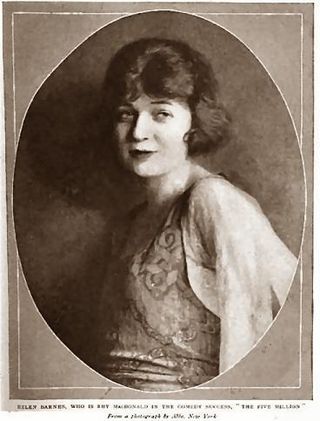
Helen Gertrude Barnes was an American musical comedy actress and Ziegfeld Follies Girl.
The Follies of 1907 is a 1907 musical revue which was conceived and produced by Florenz Ziegfeld Jr. The first of several theatrical revues that are collectively known as the "Ziegfeld Follies", the work contained songs material written by a variety of individuals; including music by Seymour Furth, E. Ray Goetz, Gus Edwards, Billy Gaston, Jean Schwartz, Silvio Hein, Matt Woodward and Gertrude Hoffman; and lyrics by Vincent Bryan, Edgar Selden, Will D. Cobb, Billy Gaston, William Jerome, Matt Woodward, Martin Brown and Paul West. Harry B. Smith authored the words for the comedic and dramatic sketches used in-between the musical numbers; as well as serving as head lyricist. Herbert Gresham staged the production and Max Hoffman, Sr. served as the musical director.
Seymour Furth was an American songwriter, composer, and librettist active from the late 1890s until his death in 1932. He wrote popular songs for Broadway musicals, vaudeville, tin pan alley, and minstrel shows; notably creating the opening musical number for the first Ziegfeld Follies in 1907. He most frequently worked as a composer with another collaborator serving as his lyricist, but sometimes he created both music and lyrics, and at other times just words with other composers. He composed piano works in popular styles of his day, including ragtime. His best known songs were comedic, including "Nothing Like That in Our Family" (1906) and "No Wedding Bells For Me" (1907).
















